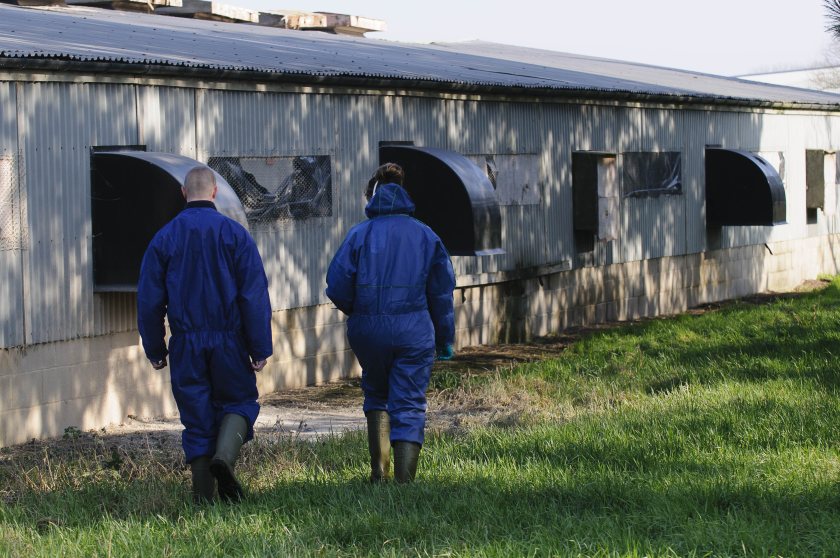Avian influenza: Bird-to-human case confirmed in England

A person in the South West of England has contracted avian influenza, the government has confirmed amid the UK's largest ever bird flu outbreak.
The UK Health Security Agency said on Thursday that the person acquired the infection from "very close, regular contact with a large number of infected birds".
The agency added that the person had kept the birds "in and around their home over a prolonged period of time."
Bird-to-human transmission of avian flu is very rare and has previously only occurred a small number of times in the UK.
All contacts of the individual, including those who visited the premises, have been traced, the agency explained.
It added that there was no evidence of onward spread of the infection to anyone else. The individual "is currently well and self-isolating".
The risk to the wider public from avian flu continues to be very low. However, people have been told not touch sick or dead birds.
The UK has recently seen a large number of outbreaks and incidents of avian influenza in birds across the country of the H5N1 strain.
Since the start of the bird flu season in late October, there have been 64 cases of avian influenza H5N1 in England alone.
Scotland, Wales and Northern Ireland have also confirmed numerous outbreaks.
The Animal and Plant Health Agency (APHA) and the UK’s Chief Veterinary Officer have issued numerous alerts and guidance to farmers and bird keepers.
The South West bird-to-human case was detected after APHA identified an outbreak of the H5N1 strain of avian flu in a flock of birds.
The infection was identified through the routine monitoring which is conducted on anyone who has close contact with infected birds. The birds have all been culled.
In line with the highly precautionary approach that the UK Health Security Agency takes, it swabbed this person and detected low levels of flu.
Further laboratory analysis revealed that the virus was the ‘H5’ type, found in birds, but it has not been possible to confirm that this is a H5N1 infection.
This is the first human case of this strain in the UK, although there have been cases elsewhere globally.
Professor Isabel Oliver, chief scientific officer at UKHSA, said: "We know that some strains do have the potential to spread to humans and that’s why we have robust systems in place to detect these early and take action.
"Currently there is no evidence that this strain detected in the UK can spread from person to person, but we know that viruses evolve all the time and we continue to monitor the situation closely.
"We have followed up all of this individual’s contacts and have not identified any onward spread."
She added: "It remains critical that people do not touch sick or dead birds, and that they follow the DEFRA advice about reporting."
The UK’s chief veterinary officer, Christine Middlemiss added that while avian influenza was highly contagious in birds, this was a 'very rare event'.
"We took swift action to limit the spread of the disease at the site in question, all infected birds have been humanely culled, and cleansing and disinfection of the premises is underway.
"This is a reminder that stringent cleanliness when keeping animals is important."








